How Kerala's Labour Dept joins forces with headload workers to terrorise businesses

Mail This Article
Kochi: On February 13, 2023, headload workers affiliated to Kerala's four mainstream parties -- the CPM, the Congress, the Indian Union Muslim League (IUML) and the CPI -- took out a joint protest march in Muvattupuzha, a town 40km east of Kochi, in Ernakulam district.
The angry protesters circumambulated the market and pitched their protest tent very close to MAB Vegetables, an onion and potato wholesale merchant, at Keecheripadi, 900m from the heart of the midland town.
Their demand: The Assistant Labour Officer (ALO) of Muvattupuzha should revoke the "illegal" registration of headload workers employed by businesses.
The headload workers affiliated with the CITU, INTUC, STU of the IUML and AITUC said allowing individual businesses to engage or employ other headload workers will deprive them of their livelihood.
But their protest was not targeted at the ALO whose office is at the Mini Civil Station, 3km away. "They came here to intimidate us because we defeated them three times in the High Court," said Nishad M B (41), who along with his brother Anas M B, runs MAB Vegetables.
"The ALO registered nine of our headload workers and issued ID cards only after the High Court pulled him up for rejecting our applications. The police agreed to give protection to our workers only after the court ordered it. The division bench also rejected their plea challenging the registration of our headload workers," said Nishad.
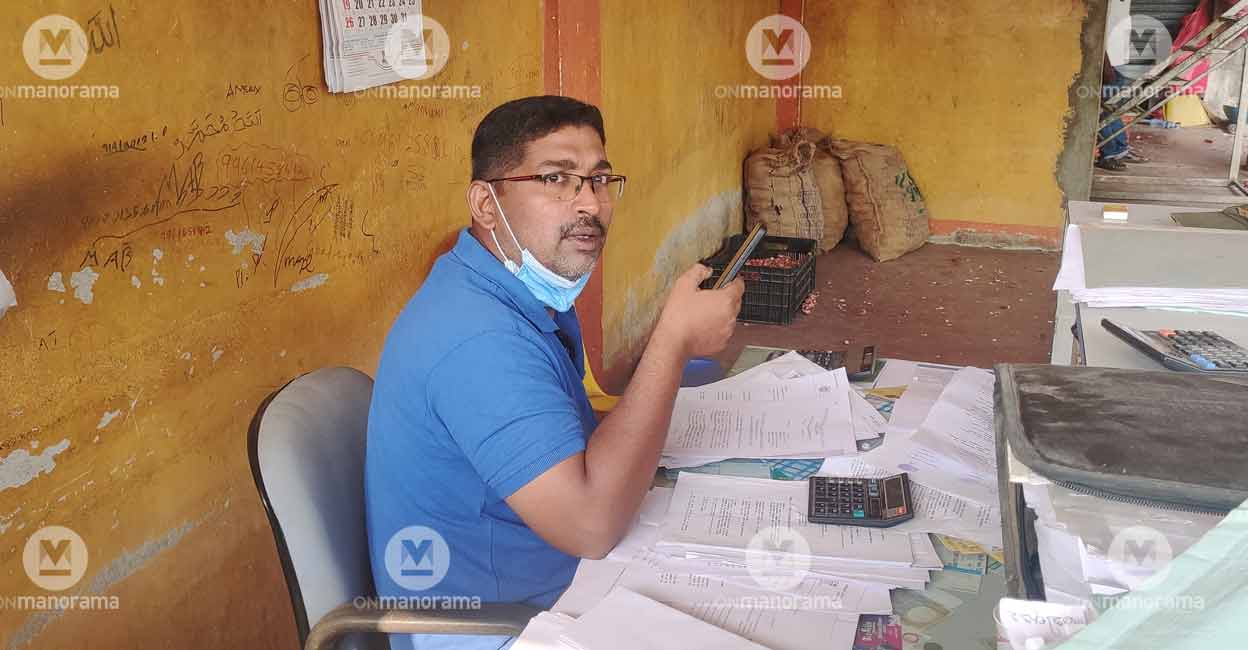
MAB Vegetables is the only business in Muvattupuzha that has registered its own headload workers under Rule 26 (A) of Kerala Headload Workers Rules, 1981. Businesses with 'attached' headload workers do not have to depend on the expensive service of 'unattached' headload workers registered with the Kerala Headload Workers' Welfare Board, controlled by trade unions.
"We were forced to seek registration of our headload workers because the exorbitant rates of the trade unions were sinking our business. I had to take a bank loan of Rs 40 lakh just to pay the loading and unloading bills," said Nishad.
But the trade unions and the Department of Labour have a two-pronged system in place to harass businesses trying to break the monopoly of trade unions on headload work in Kerala.
One, the ALO, which is the registering authority of headload workers, often reject applications filed by businesses to register their workers under Rule 26 (A). The District Labour Officers often uphold ALO's decisions. They willfully and with impunity ignore the many judgments passed by the Kerala High Court since 1989 on the Kerala Headload Workers Act which came into force in October 1980.
If the Labour Department implemented the judgments, Kerala would have improved its ease of doing business, said Nishad.
Two, trade unions resort to threats and assaults of attached workers and business owners, and pressure labour officers to cancel the registration of attached headload workers. "The nexus is too strong to overcome. They have political leaders, government officials, and muscle power on their side. We have only the court," said Nishad.
Before the protest in front of his shop, on January 29, suspected trade union workers thrashed one of Nishad's attached headload workers, Dinu Mondal (44) when he was unloading onions at another vegetable shop. An injured Mondal returned home to Murshidabad in West Bengal to recover.
Nishad had filed a contempt case against Muvattupuzha police for not protecting his worker despite an order from the High Court.
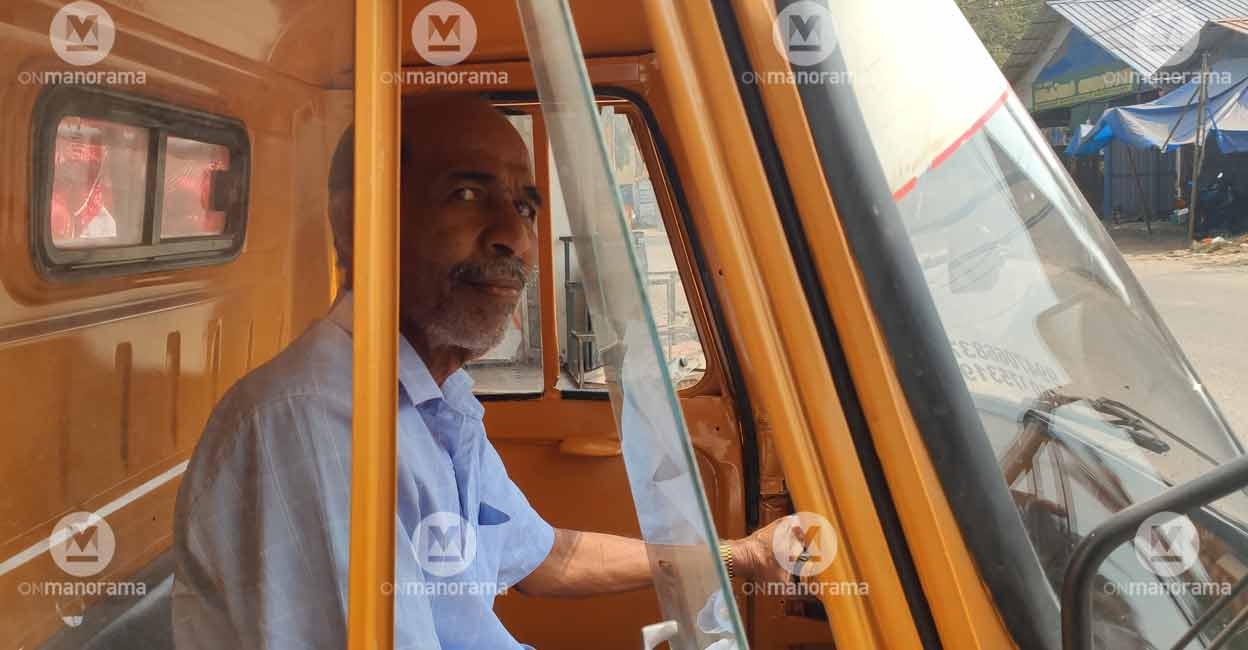
When the unattached headload workers, represented by the Kerala Headload Workers Welfare Board, challenged the registration of Nishad's worker, a two-judge bench of the Kerala High Court issued a set of guidelines, after analysing the Kerala Headload Workers Act, 1978.
The order said: Unattached headload workers have no right to object to the registration of attached headload workers under Rule 26A. The argument that the registration of attached headload workers will affect the employment opportunities of unattached workers is legally untenable because it violates Article 19 (1) (g) of the Constitution which provides the right to practice any profession or to carry on any occupation, trade or business to all citizens.
The judgment was passed on August 7, 2022, by justices A K Jayasankaran Nambiar and Mohammed Nias C P.
There are several such judgments from the High Court upholding and protecting the rights of businesses to engage their own headload workers. The judgment in the Raghavan vs Superintendent of Police, 1998, was cited by the court in at least 35 subsequent similar cases, according to the-laws.com.
The High Court Judge Usha J repeated the points in the Theresa George vs Sub-Inspector of Police case of 2015, that an employer can have attached workers for loading and unloading work but they have to register the workers under Rule 26A.
In the 2016 Gangadharan vs Abdul Nasir case, the High Court ruled that registered unattached workers, that is union workers, had no right to prevent the registration of headload workers attached to an establishment.
"The government will not take the initiative to implement these orders because of its dependence on trade unions. But I fail to understand why traders' organisations such as the Kerala Vyapari Vyavasayi Ekopana Samithi are not spreading the word and making registration common rather than an exception," said Adv Biju Abraham, who has won several cases against the trade unions. His famous win includes getting Eastern Condiments the right to use its own registered workers to load and unload goods back in 2012.
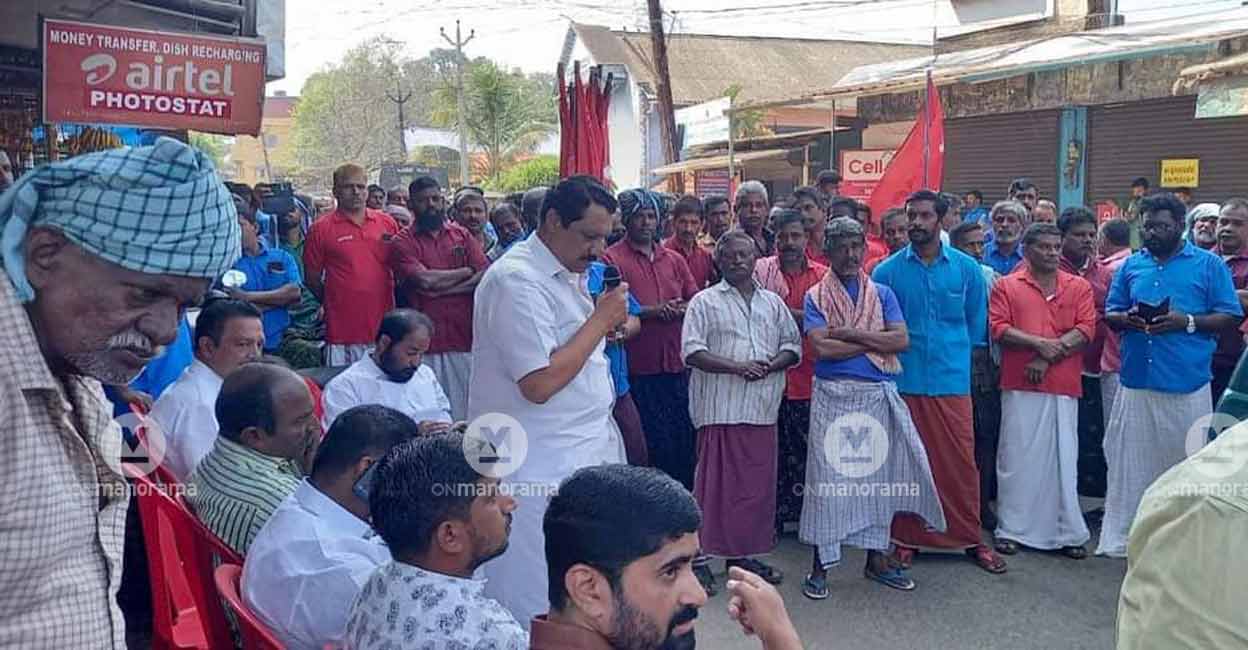
ALO-DLO's tango to tangle businesses
On the morning of March 7, 2023, Payyannur Assistant Labour Officer Unnikrishnan M travelled 15km to reach Mathamangalam, a trading hub for hill products, in Kannur district's Eramam-Kuttur grama panchayat. Unnikrishnan had a task at hand.
Sree Porkkali Steels, which sells GI pipes and roofing sheets, was reopening after three months after it was forced shut by militant headload workers affiliated with the CPM's trade union, CITU.
Its owner Sruthi Koova (36) and her husband Mohanlal T V (43) procured an order from the High Court of Kerala directing the Kerala Police to protect the business and trucks arriving with pipes and sheets.
Since December 8, 2022, the headload workers had sent back trucks arriving with loads or deflated the tyres of trucks seven times. This time, armed with the court order, Mohanlal lined up five headload workers of Sree Porkkali to unload the GI pipes. When the truck arrived, Assistant Labour Officer (ALO) Unnikrishnan stepped in and stopped the five headload workers from unloading the pipes. The officer said he could not allow the workers to unload the pipes because they were not registered as headload workers under Rule 26 (A) of the Kerala Headload Workers Rules, 1981.
To be sure, Sree Porkkali Steels' applications for registering its five headload workers were on ALO's table when he was at Mathamangalam.
The ALO's action was in direct violation of the division bench order passed seven months before in Nishad's case.
In the judgment passed on August 7, 2022, justices A K Jayasankaran Nambiar and Mohammed Nias C P said that an 'attached worker does not have to be registered as a headload worker for doing headload work'.
"He can be employed or engaged to do such work in the establishment of his employer and thereafter seek registration in terms of Rule 26A once he starts doing headload work in that establishment," the order said.
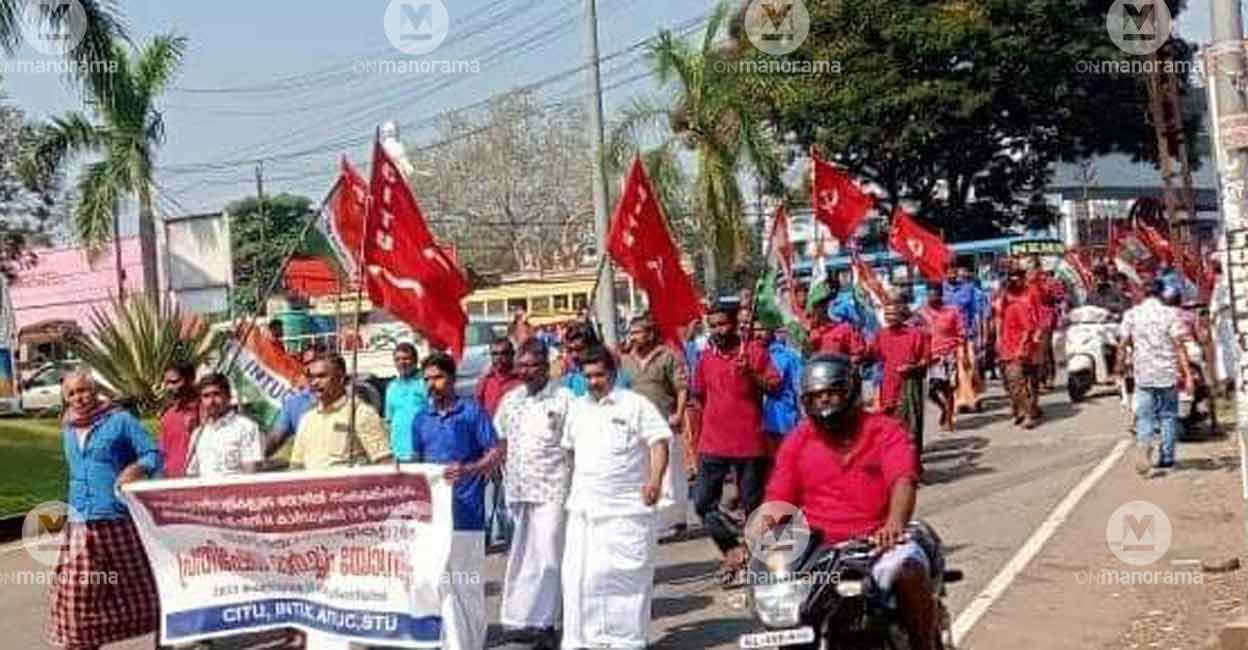
Trade unions often raise the bogey of 'scheme area', saying only unattached headload workers have the right to carry out loading and unloading in areas covered by the Headload Workers' Welfare Scheme of 1983.
The judgment says: "The attached worker, at the time of his employment or engagement need not be registered in terms of Rule 26A. It is sufficient that he is engaged for headload work in the establishment. This is so even if the establishment is located in a scheme-covered area because the 1983 scheme does not apply to an attached worker."
ALOs, who are the registering authority, and DLOs, the appellate authority, ignored the judgment.
To date, Sree Porkkali Steels is not allowed to unload goods at its shop at Mathamangalam, using its own workers. However, two police officers stand guard near the shop, said Mohanlal.
The cumbersome process to break free
In the early months of 2022, Sruthi, applied with the Payyannur ALO, to register three of her headload workers under Rule 26 (A). Both the Payyannur ALO and the Kannur DLO rejected the applications saying registering attached headload workers "would affect the work" of the existing unattached headload workers.
She moved the High Court against the rejection. Judge Amit Rawal on November 1, 2022, quashed the reasons given by the DLO and directed the ALO to register the three workers and issue ID cards to them under Rule 26 (A).
She had met all the conditions, including maintaining the register with the names of the headload worker.
When the ALO issued the ID cards, Sruthi and Mohanlal tried to resume business at Mathamangalam.
On December 8, when a truck arrived with a load, unattached headload workers of the CITU created a ruckus and sent the vehicle back. A complaint was filed with the Payyannur Police but no FIR was registered.
The couple moved the High Court for police protection, which was granted on December 20, 2022.
The police arrived at the shop. But the trade union workers started blocking trucks to Sree Porkkali Steels on the road and sent them back. "Sometimes, they deflated the tyres and assaulted the drivers," Mohanlal said.
On his complaints, six FIRs were filed against the union workers.
On February 7, two of the three registered workers of Sree Porkkali Steels were assaulted allegedly by the union workers. The workers from Bihar returned home.
Sruthi now applied to register five new workers as headload workers to replace the three.
She moved the court again seeking protection for their trucks. The court granted it too on March 3, 2023, a full year since the couple first tried to register their headload workers with the ALO.
Meanwhile, ALO Unnikrishnan refused to register her workers saying he is not convinced the shop has enough work for five headload workers, or the shop has conducive working conditions, and thirdly, saying the shop did not maintain a register of its headload workers.
Mohanlal said the officer did not ask for the register. "When we first approached the High Court last year to register our workers, we had produced the register. Why will we not maintain it this year?" he said.
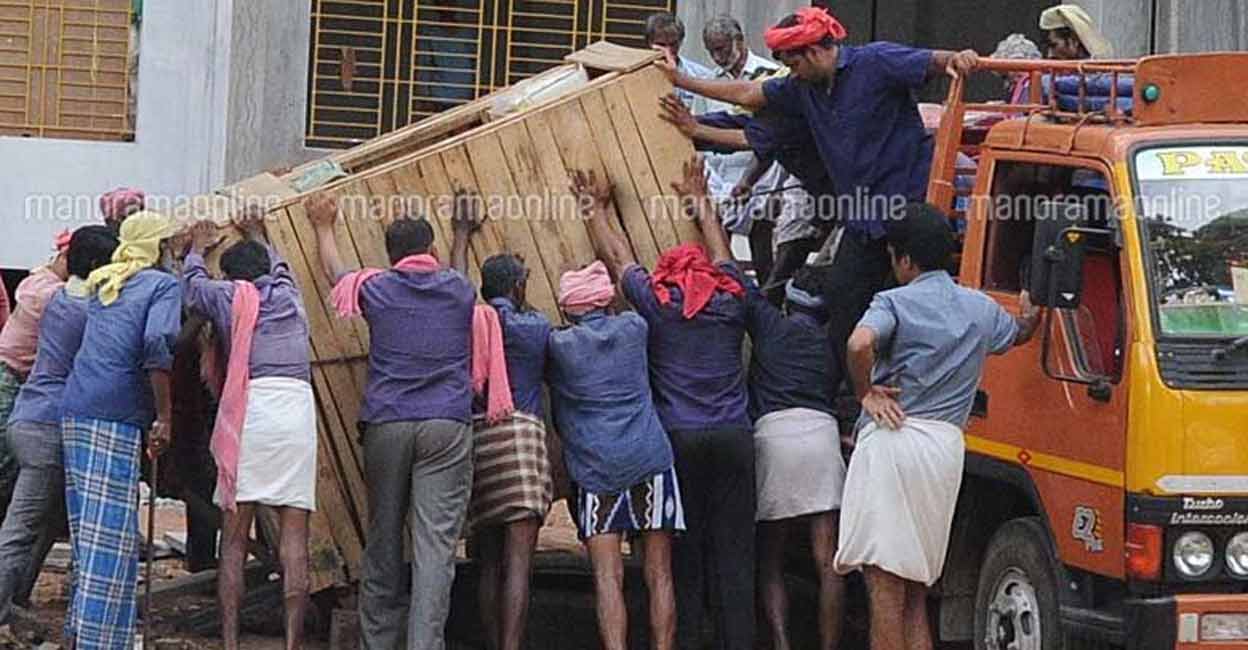
In any case, the couple had appealed before the District Labour Officer and submitted the register also. "We are waiting for the DLO to reject it so that we can go to the High Court again. We are not going to compromise with the trade union," he said. "It will be self-destructing."
Why do businesses prefer in-house loading workers?
Three key aspects of unattached headload workers that deter businesses are their crippling rates, unavailability, and lack of flexibility.
Mohanlal and Sruthi of Sree Porkkali Steels run eight hardware shops in Kannur and Kasaragod districts. They find engaging unattached headload workers a drain on their cash and energy.
Headload workers registered with the Kerala Headload Workers' Welfare Board charge Rs 10 to unload one GI six-metre-long pipe weighing between 4kg, 5kg and 20kg, he said.
Assuming, a 25-tonne truck arrives with pipes weighing 4kg and 20kg each, there will be 6,250 pipes to 1,250 pipes to unload. "Going by their rate of Rs 10 per piece, we will have to shell out anywhere between Rs 12,500 and Rs 62,500 for unloading per truck," said Mohanlal. "Since we get a mix of pipes, the unloading bill will be around Rs 25,000 per truck. And we get around 10 trucks per month in one shop. You do the maths," he said.
The shop has to shell out around the same amount to load the pipes when customers arrive.
Now, if the shop engages its own workers to unload, the owners pay them Rs 2,000 to Rs 2,500 per truck. "That is on top of their monthly salary of around Rs 15,000," said Mohanlal.
High loading cost increases the retail price of pipes by around Rs 4 per kg, said Mohanlal. "Our margin is just Re 1 per kg. How can we compete with shops engaging their own staff," he said.
If the high rate is not crippling, the headload workers registered with the welfare board increase their rate by 20% to 30% every two years.
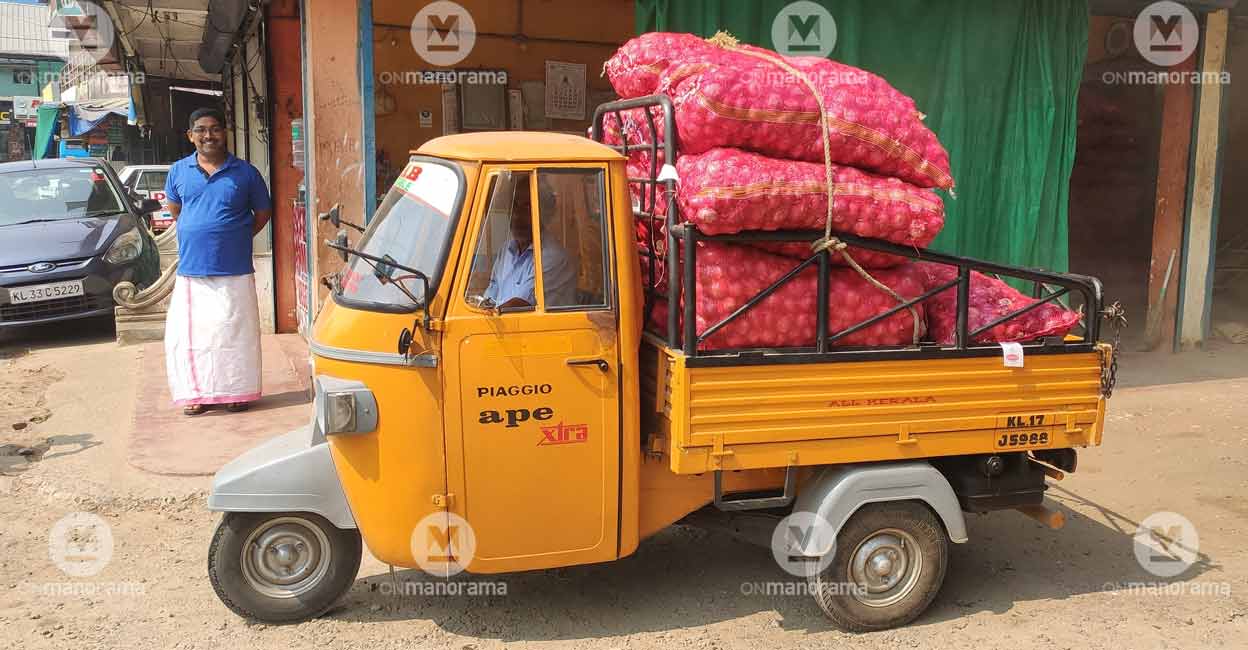
Nishad of Muvattupuzha is a wholesale dealer of onions, potatoes, garlic and shallots. Every week, three trucks deliver 75 tonnes of onions from Maharashtra. Garlic, shallots and potatoes come from Pollachi.
Trade union workers charge him Rs 16 to unload one sack of onions weighing 50kg, and another Re 1 for weighing each sack to ensure it is 50kg, for if the weight is more they will charge extra. "So I have to pay Rs 8,500 to unload 500 sacks of onions that come in one truck. But they are not satisfied with that. They will ask for another Rs 1,000 for tea. After unloading, we have to load the sacks into smaller pickups to be taken to retail shops. The loading is done by in-house workers. Trade union workers stand atop the pickup and stack up the sacks. They charge Rs 8 per sack just for stacking up," he said.
In all, when a 25-tonne truck arrives with 500 sacks of onions, MAB Vegetables used to shell out Rs 13,500 on loading and unloading. For a week, the headload workers' bill was Rs 40,500 for three trucks of onions.
Now he pays Rs 900 to each of his six workers to unload and load 500 sacks. That comes to Rs 16,200 for three trucks of onions in a week. "That is, I am saving 60% on the loading bills now," he said. "I haven't added the cost of damage the union workers cause when they throw sacks of potatoes and onions carelessly from a height," he said.
Nishad's 70-year-old father M A Basheer said the wholesale vegetable business is a volume game. "Our margin is just around 50 paise per kg. So our profit from one sack is just Rs 25, the same amount the union workers were charging us to load and unload. Look how we were being fleeced," he said, and hopped into a yellow Piaggio Ape cargo auto and drove away. He has to deliver 20 sacks of onions to retail shops in Perumbavoor, 20km from Muvattupuzha.
After his father left, Nishad said he would have shut down MAB Vegetables, named after his father M A Basheer, if the High Court did not come to their rescue.
Painting a grim picture
Sajee C M (65) -- a wholesale dealer for cement, steel, and paints at Puthencruz, a fast-developing village on the outskirts of Kochi -- was also losing money to headload workers when he decided to move the court because the Department of Labour and the police were not implementing the law.
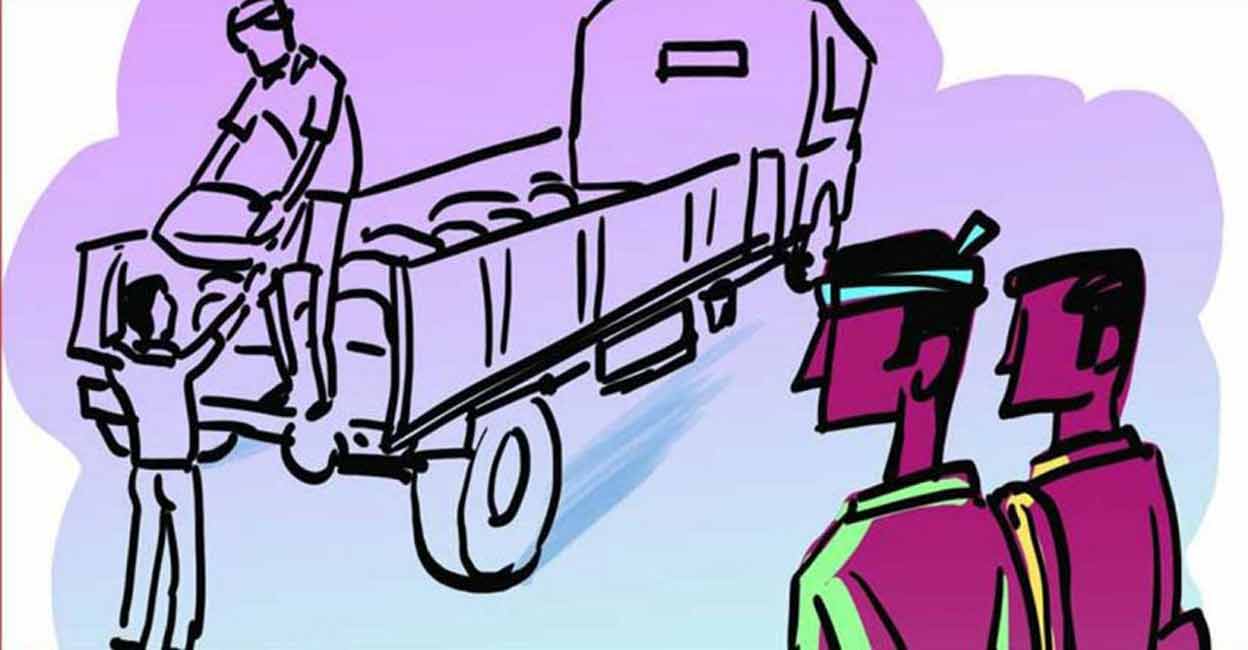
Sajee owns four shops in Puthencruz -- Cheereth Metals, Cheereth Steels, CM Mathai and Sons, and Cheereth Enterprise.
The merchants of the town have an agreement with the headload workers affiliated with the CPI's All India Trade Union Congress (AITUC) to load and unload goods arriving at and leaving their shops. But the agreement excludes goods arriving in small boxes such as soaps and paints. The distributors themselves unload those goods.
In May 2022, Perumbavoor ALO registered Sajee's three workers as headload workers under Rule 26 (A), but Sajee used the workers only to unload and load paint tins and buckets.
In October, AITUC headload workers demanded the right to unload paint and Sajee refused to budge saying paint was out of the purview of the agreement with the merchants of Puthencruz. "They said they will not allow even my registered headload workers to unload goods and the police said they cannot intervene," said Sajee.
Pushed to the corner, Sajee moved to the High Court seeking police protection for his workers.
On December 5, 2022, the division bench of Justices K Vinod Chandran and C Jayachandran ruled that attached workers can unload and load goods of their establishment, and not just paint, quoting from the judgments in the Raghavan vs Superintendent of Police (1998) and Theresa George vs Sub Inspector of Police (2015). Unattached headload workers can stake claim to the work in an establishment only if it does not have attached registered headload workers or if it is falling short of hands.
The division bench also pulled up the Perumbavoor ALO for imposing restrictions on the attached headload workers of Cheereth Metals. In the order sanctioning the registration of three workers of Cheereth Metals, the ALO wrote: "Even though the regular workers were granted registration, the two sides (attached workers and unattached trade union workers) should maintain status quo in matter of loading and unloading".
Sajee had challenged the restriction before the District Labour Officer (DLO) of Ernakuram.
The two judges said: "Though the restriction imposed by the registering authority (ALO) is one of the issues pending in appeal, we cannot be mute spectators when a
statutory authority (ALO) oversteps the jurisdiction conferred..." They then allowed Sajee's three registered workers to carry on the loading and unloading work in their establishment.
"If any obstruction is caused to such loading and unloading work carried on by the three registered
workers, definitely the police would interfere and avert it," the court said.
But the AITUC approached the DLO saying the ALO granted the registration without hearing them out.
The DLO obliged and on January 13, 2023, revoked the registration granted to the three headload workers because one trade union was not heard.
The decision sits in conflict with the order of the division bench issued in Nishad's case on August 3, 2022.
The judgment in unambiguous words said: "Unattached pool workers have no right to object to the grant of registration under Rule 26A to a worker who is attached to an establishment."
They can raise their objection only if the attached worker quits his establishment and seeks to work in a scheme area as an unattached worker without registering with the Kerala Headload Workers Welfare Board.
Despite clear-cut orders from the High Court, trade union workers muscle their way in and stake claim to the work in private businesses, said Nishad. The police just shrug and the labour officers play along with the trade unions. "And every time, we have to rush to the court and the process erases months from our calendar," he said.
Meanwhile, CPM state secretary M V Govindan gave a happy quote to Kerala observing 2022-2023 as the 'Year of Enterprises': "Business owners who shell out money have the right to decide on who should work for them, not trade unions".
The government will celebrate the quote. The trade unions and the businesses ignored the studied statement as white noise.


